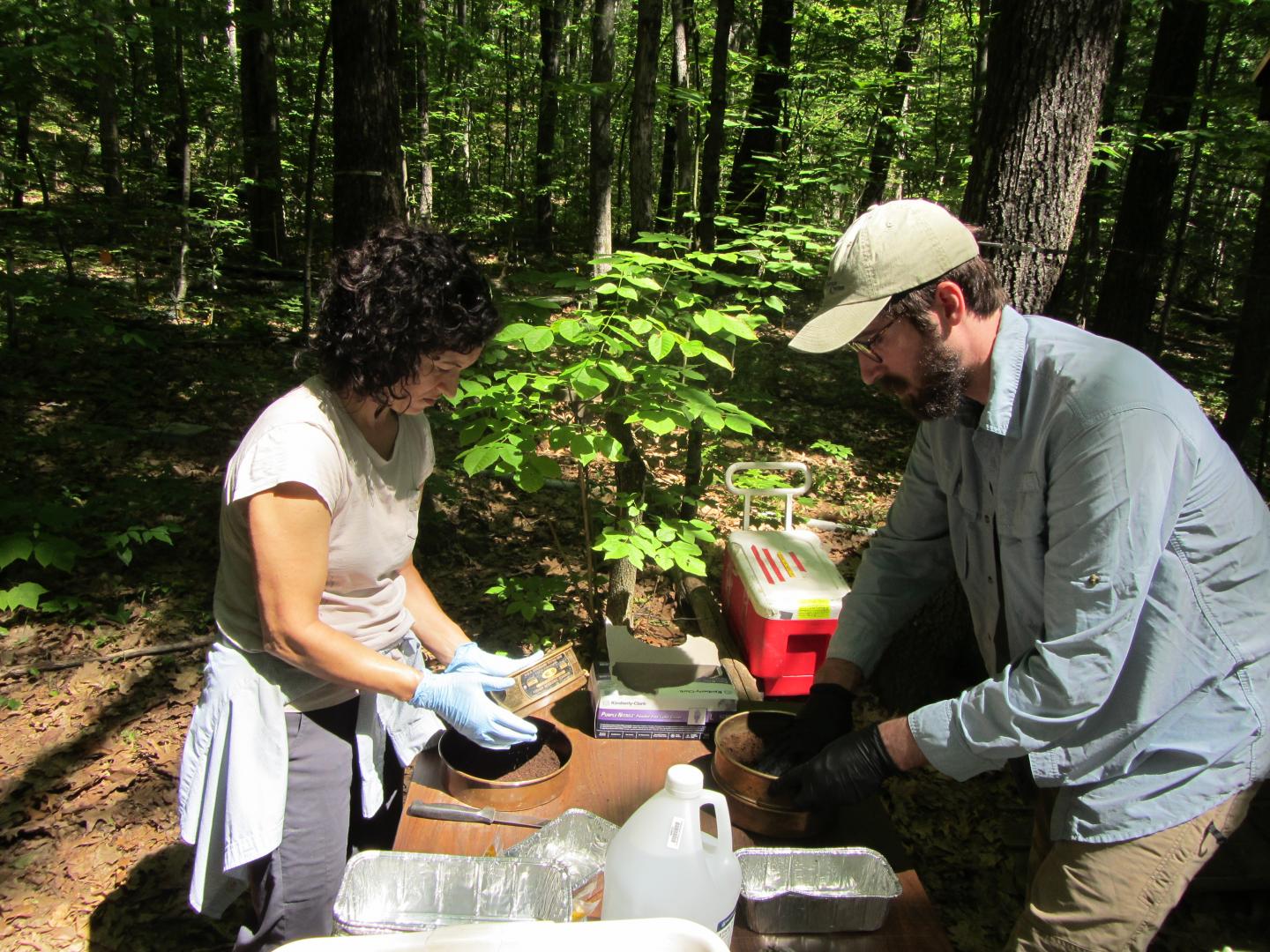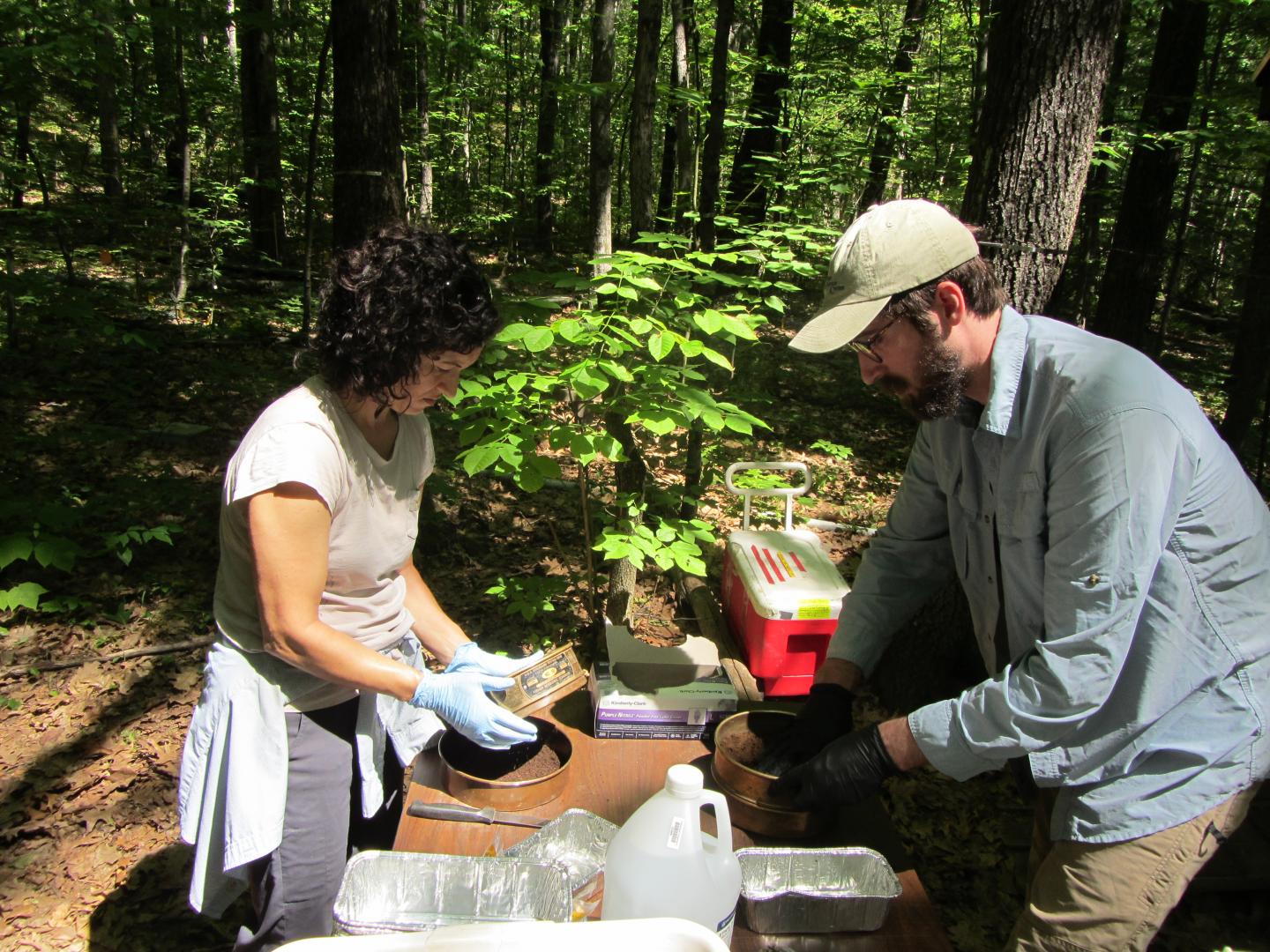
Credit: UMass Amherst/DeAngelis lab
AMHERST, Mass. – Microbial ecologist Kristen DeAngelis at the University of Massachusetts Amherst has been recognized by the National Science Foundation with its Faculty Early Career Development (CAREER) award, a five-year grant that will support her research and teaching on soil microbes and their response to environmental change.
The grant will support a small army of microbiology students DeAngelis plans to mobilize who will annotate soil microbe genomes, map traits and carry out other investigations in bacteria at the soil warming experiment at Harvard Forest, a research station in north central Massachusetts that is home to the longest running soil warming experiment in the world, now 26 years.
The NSF CAREER grant is the organization's highest award in support of junior faculty who exemplify the role of teacher-scholars through outstanding research, excellent education and the integration of both. DeAngelis will receive $954,000 over the five years to support her projects.
In her earlier work with microbial communities at Harvard Forest, DeAngelis has observed that while the fungal biomass is lower and their numbers reduced with warming soil, bacteria are less affected. "The bacteria appear to be doing fine with less food, lower quality food and in drier soils," she says.
DeAngelis adds, "We are focused now on new traits that seem to have developed in the bacteria due to warming. After all these years, we have access to samples that lack warming and others as warming has progressed, which gives us the ability to compare these communities as the environment changes."
"The heart of this new research will be undergraduates who adopt a microbe for a year as part of their senior thesis project," she adds. "In the first semester they will annotate the genomes, investigate the size of the genome, map genome traits, characterize their metabolism and auxotrophies – amino acids they cannot make but must get from their diet. There's a core list of genomic and genetic features they will look for in their adopted organism."
In addition, she will ask students to formulate testable hypotheses about their adopted organism in the second, laboratory-based semester. With the guidance of research technician Alex Bales, they will make measurements to chart such variables as growth rate, diets, temperature sensitivity and other factors to test their hypotheses in living organisms. This project will help train the next generation of students in environmental microbiology, DeAngelis points out.
She says, "By the end we will have a couple of dozen organisms with newly characterized genomes to work with, and a large collection of traits and observations that we think are related to warming and related to the microbes' ability to thrive and deal with higher temperatures and with nutrition deficits."
With the new information, she and research fellow Alex Bales will conduct higher-level analyses of specific traits to better understand what is allowing bacteria to be successful even in the face of long-term warming.
DeAngelis points out, "Microorganisms are important components of every ecosystem. They virtually never live in isolation in nature, only as part of communities with other microbes. Soil microbial communities are major actors in the Earth's elemental cycles, and their response to environmental change can determine whether microbes help soil to retain more of compounds such as carbon, or whether it will be emitted in gaseous forms. These gaseous carbon compounds, mainly carbon dioxide and methane, are major greenhouse gases," she adds.
Another educational aspect of the CAREER grant to DeAngelis is her support for students in NASA's Student Spaceflight Experiments Program (SSEP) in teacher Paula deDiego's science classes at Montachusett Regional Vocational Technical School in Fitchburg. In this national program, students compete to have their experiments chosen to fly on a mission aboard the International Space Station.
"This is a project I've been working on for a few years with Paula, and I'm really excited to be able to help her," says DeAngelis, who with her doctoral student Gina Chaput has helped the vocational school students to design microbiology experiments to go into space. If and when their microbial samples return to Earth, the DeAngelis lab at UMass Amherst will assist the students in their analysis.
"It has a big impact for that science program, and it means that Paula doesn't have to spend her summer fund-raising." Further, by offering the SSEP program several years of support, DeAngelis can help to maintain its quality and continuity, with seniors mentoring upcoming juniors and sophomores, she says.
###
Media Contact
Janet Lathrop
[email protected]
413-545-2989
@umassscience
http://www.umass.edu
Original Source
http://www.umass.edu/newsoffice/article/umass-amherst-microbiologist-will-lead-new





